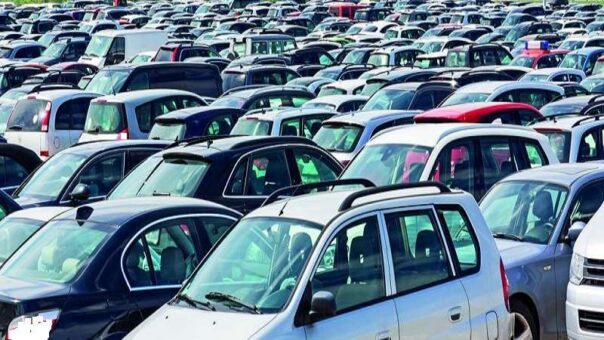Four major domestic and foreign car manufacturers in South Korea have announced voluntary recalls for approximately 11,160 vehicles due to manufacturing defects, as confirmed by the country’s transport ministry on Thursday.
According to the Ministry of Land, Infrastructure and Transport, Hyundai Motor is set to recall a total of 6,468 units comprising two different models. Among these, the Santa Fe model is included for defective back seats, while 572 units of four models, including the G80, are affected by faulty bolts in the front wheels. Additionally, 769 units of two models, including the Grandeur, are subject to recall due to software errors in the dashboard.
Mercedes-Benz Korea, another prominent carmaker, will recall 2,485 units across 11 different models, such as the S 500 4MATIC, to address issues related to poor durability of fuel pump components. Similarly, Stellantis Korea has identified software errors in the electronic control units of 557 units of three models, including the Peugeot e-2008 electric, necessitating a recall for necessary repairs.
MAN Truck & Bus Korea, specializing in commercial vehicles, will recall 308 units of the TGX tractor model due to defective bolt fastening in trailer connecting units.
Affected vehicle owners are advised to promptly visit authorized repair and service centers designated by the respective manufacturers to facilitate the replacement of faulty parts at no additional cost. This proactive measure aims to ensure the safety and reliability of vehicles on the road, mitigating potential risks associated with identified manufacturing defects.
The voluntary recall initiative underscores the commitment of car manufacturers to uphold stringent quality standards and prioritize customer safety. By promptly addressing identified issues and implementing necessary corrective measures, manufacturers aim to maintain trust and confidence among consumers.
In compliance with regulatory requirements, manufacturers are required to promptly report any identified safety concerns or defects to the relevant authorities and take appropriate corrective action to safeguard consumer interests.
The recall process serves as a crucial mechanism for identifying and rectifying potential safety hazards in vehicles, thereby contributing to the overall safety and reliability of the automotive industry.
As the affected vehicles undergo necessary repairs and replacements, consumers are encouraged to stay informed through official communication channels provided by the manufacturers and regulatory agencies.
